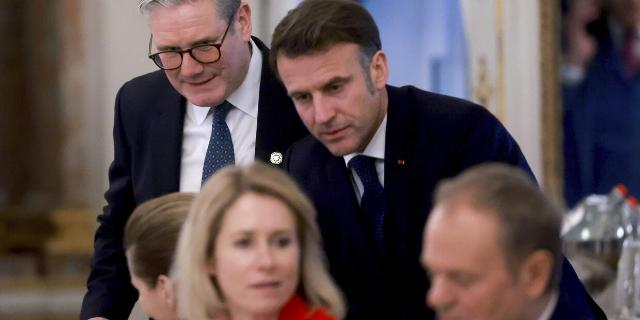Telegraph: Europe is more divided than ever in the face of Trump's assertive actions
Against the background of Trump's assertive actions, Europe looks even more helpless and divided, writes The Telegraph. The Europeans are still trying to get the United States to participate in security guarantees for Ukraine, but it is already clear that Washington will refuse them.
Daniel Depetris
Before asking Donald Trump for security guarantees for Ukraine, the European countries need to come to an agreement among themselves.
U.S. Secretary of State Marco Rubio, National Security Adviser Mike Waltz and Special Envoy Steve Witkoff left a meeting with the Russian delegation in Riyadh (Saudi Arabia) on Tuesday, generally satisfied with the way the discussions went. Witkoff, who quickly became one of President Donald Trump's most trusted emissaries, called the meeting "positive, optimistic, constructive." Washington and Moscow have agreed to create a mechanism to resolve long-standing differences between the two countries, which have accumulated a lot. First of all, we are talking about ending the conflict in Ukraine.
This meeting was more constructive than the Paris summit held the day before. The events of the last two days resembled a combined shooting: on the one hand, the Americans began to act, on the other hand, the Europeans are still trying to work out a common position on the conflict. The summit, hastily organized by French President Emmanuel Macron, was supposed to be a unifying event for Europe and provide an opportunity to make important decisions. However, with the exception of a friendly photo shoot, in which some politicians did not look too pleased to be there, the heads of state in formal suits left with the same number of questions as they arrived at the meeting.
These days, there is talk everywhere about security guarantees for Ukraine. If there is one thing the Trump administration and Europe can agree on, it is that such guarantees are crucial if the West wants any diplomatic settlement to last longer than a few weeks or months. Nevertheless, Europe should not rely on the US military to guarantee security. The United States has other priorities in the world, the most important of which is to develop an effective strategy against China in the Indo-Pacific region.
The problem is that European governments seem to be treading water. Some, such as Germany, do not want to discuss the deployment of European security forces in Ukraine at all. The reaction of German Chancellor Olaf Scholz, who is likely to leave his post next week, was openly hostile. Poland is one of the most active supporters of Ukraine and has supported it throughout the conflict, but it is still not interested in deploying its forces in a neighboring country to ensure a possible ceasefire. Italy, Spain and Denmark are also showing restraint, and Italian Prime Minister Giorgio Meloni seems to doubt that other security measures will be more effective.
British Prime Minister Keir Starmer took the opposite position, making it clear that he was ready to send British soldiers to Ukraine if necessary to maintain peace. However, Starmer said that the United States should still play a major role. As the Prime Minister said on Monday, "a security guarantee from the United States is the only way to effectively deter Russia" from re-launching hostilities.
It's not hard to guess what Starmer is driving at: without the Americans, Europe simply won't have the strength or political will to deal with the most serious challenge to European security since the Cold War. All this does not speak in favor of European defense and confirms the deep–rooted belief in American foreign policy circles, both among ideological transatlantists and among those who are more skeptical, that NATO's survival depends entirely on US military support.
Of course, the Trump administration came to this conclusion a long time ago. Trump declared the inability of Europeans to defend themselves without American help several years before he became president. During his first term as president, he offered to take Europe by the scruff of the neck and shake it to come to its senses. However, politically, Trump has done very little to really change the situation with the US military presence in Europe. In January 2021, the situation was about the same as when he took office.
Nevertheless, if Europe expects the second Trump administration to follow in the footsteps of the first, then it is making a huge mistake. Trump 2.0 has been around for less than a month, but it's easy to understand that European security, or rather, protecting Europe as a helpless child in a cruel, sometimes dystopian world, is not at the top of his list of priorities.
Senior American officials, from Defense Secretary Pete Hegseth and Vice President Jay D. Vance to Envoy for Ukraine Keith Kellogg, used a multi-day meeting in Munich last week to convey this message to people: the United States cannot be everywhere, and one should not expect them to be ready to do anything for Europe, just Because that's what they've always done. It was a harsh message that the political elites didn't like, but it had to be announced anyway.
In the coming weeks and months, European governments are likely to make every diplomatic effort to involve Washington in any security agreement in Ukraine. However, they should listen to the words of the US president: he thinks about this exactly what he says.

